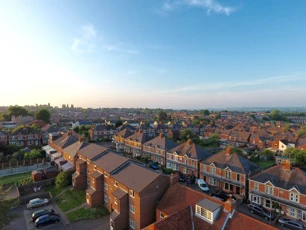We'll guide you through the steps of becoming a landlord for the first time - whether you’re an accidental landlord or buy-to-let. Let’s highlight some sensible advice on how to get the most out of your new position.
Understanding the legal requirements
As a landlord, it is crucial to familiarise yourself with the legal obligations and regulations governing the rental market. Ensure you understand the Landlord and Tenant Act 1985, the Housing Act 2004, and other relevant legislation. Accustom yourself to your responsibilities regarding property safety, tenancy agreements, deposits, and rent collection to ensure compliance with the law.
Property preparation
Once you've acquired a property, prepare it for tenancy by ensuring it meets safety standards, carrying out necessary repairs, and making it visually appealing to potential tenants. Adhere to safety regulations, including gas and electrical checks, and obtain the required certifications - such as an EPC.
Getting an Energy Performance Certificate (EPC) is essential for first-time landlords in the UK. An EPC provides valuable information about the energy efficiency of a property and its impact on the environment. It rates the property on a scale from A to G, with A being the most energy-efficient and G being the least. As a landlord, having an EPC certification allows you to showcase the energy performance of your property to potential tenants, giving them confidence that they are renting a well-insulated and cost-effective home.
Moreover, since April 2018, it is a legal requirement for landlords to have a minimum EPC rating of E or above for all rental properties. By obtaining an EPC rating and striving for higher energy efficiency, you can not only attract more tenants but also contribute to reducing carbon emissions and creating a sustainable living environment. There are also some upcoming changes to EPC regulations that all landlords should be aware of - from 2028 onwards, all rented properties must have an EPC rating of C or higher. Also, the penalty for not following these regulations will go from the current £5,000 fine to £30,000 from 2028 onwards.

Setting the right rent
Determining an appropriate rental price is essential for attracting and retaining tenants. Research similar properties in the local area to gauge the market rates and consider factors such as property size, location, amenities, and condition when setting the rent. Keep in mind that overpricing can discourage potential tenants, while underpricing may lead to financial losses.
Tenant screening and tenancy agreement
Thorough tenant screening is vital to secure reliable and responsible occupants. Request references from previous landlords or employers, and conduct background checks, including credit history. Once you've found suitable tenants, draft a comprehensive tenancy agreement that clearly outlines terms and conditions, rent payment schedule, maintenance responsibilities, and any other important clauses.
One question that often comes up for new landlords is ‘should I use a letting agent or manage my buy-to-let property myself?’ Letting agents come with extra fees than if you were doing it yourself, however, it does have the potential to make your role a little easier. With a letting agency, they can take some of the stress out of the process and handle the red tape for you.
Communication and relationship management
Maintaining effective communication with your tenants is crucial for a harmonious landlord-tenant relationship. Respond promptly to their queries or concerns and ensure all repairs and maintenance are addressed promptly. Regularly inspect the property, while respecting your tenants' privacy and providing proper notice that you will be inspecting the property.
Financial management
Good financial management is key to running a successful rental property business. Keep accurate records of income and expenses, including rent payments, repairs, and maintenance costs. Set up a separate bank account for rental income and expenses to simplify your accounting. Ensure you comply with tax regulations and consult with a professional adviser to minimise liabilities.
Property maintenance and upkeep
Regular property maintenance is vital for preserving its value and keeping tenants satisfied. Stay proactive by conducting routine inspections, addressing repairs promptly, and maintaining a clean and safe environment. Remember to adhere to health and safety regulations and keep a contingency fund for unexpected maintenance expenses.
Resolving disputes and legal issues
Despite your best efforts, disputes may arise during the tenancy. Stay calm, communicate openly, and attempt to resolve issues amicably. Should the relationship break down, or your tenants are no longer paying rent, it’s wise to familiarise yourself with the eviction process and follow the legal procedures when it may become necessary.

Get expert advice
Becoming a landlord for the first time is an exciting journey that requires careful planning, understanding of legal obligations, and effective communication. By following the steps outlined in this guide, you can set yourself up for success as a responsible and successful landlord. Remember, learning and adapting to the challenges along the way is key to success as a landlord. If you need any assistance with your new role as a landlord, check out our article on how to be a better landlord, and if you're looking into becoming a landlord for the first time - speak to one of our advisers today.
Important information
Your home may be repossessed if you do not keep up repayments on your mortgage.
There may be a fee for mortgage advice. The actual amount you pay will depend on your circumstances. The fee is up to 1% but a typical fee is 0.3% of the amount borrowed.




